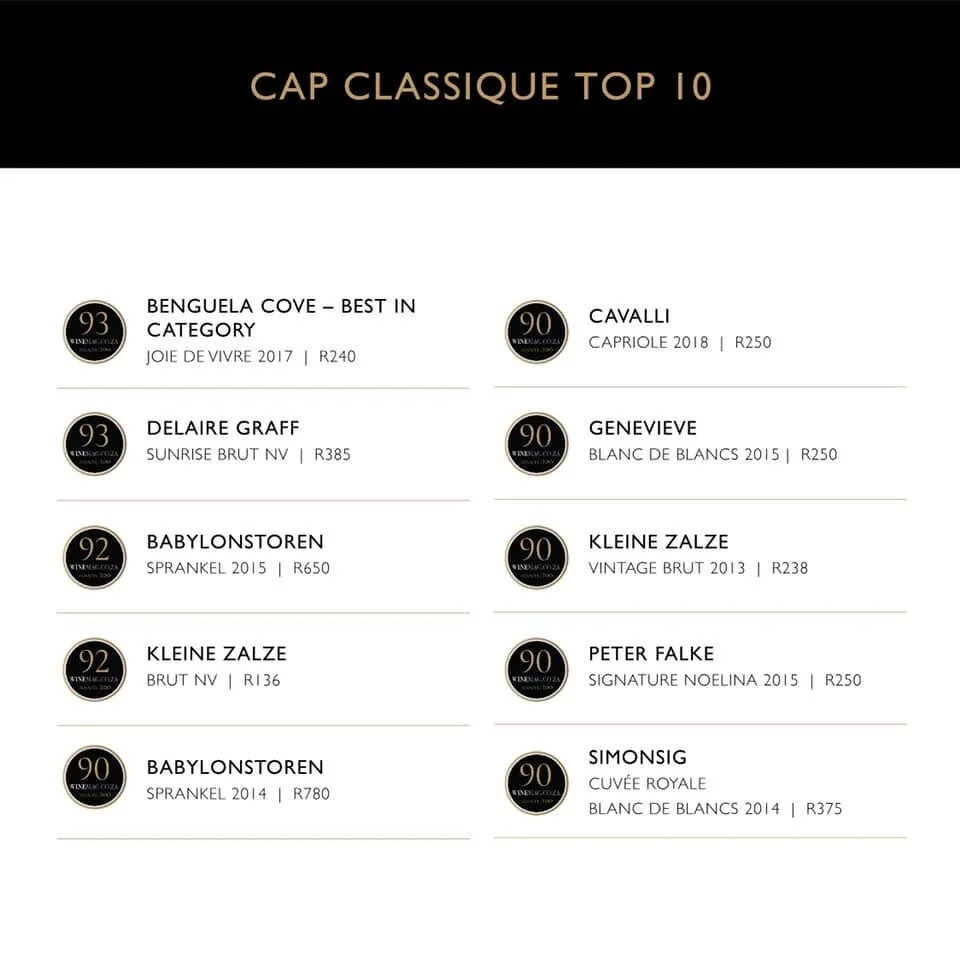The 20 Best Wines in South Africa 2020
Winemag.co.za in its annual awards reviewed 927 wines across 20 wine categories to judge Benguela Cove Joie de Vivre 2017 the best in the Cap Classique sparkling category in South Africa, scoring 93 points out of 100.
Situated outside Hermanus, Benguela Cove is the flagship in the property collection owned and operated by British/South African entrepreneur Penny Streeter OBE and her family. Johann Fourie, previously of KWV, is the winemaker and cellar master.
The judges’ tasting notes said of Joie de Vivre, which is 64% Chardonnay and 34% Pinot Noir: “A really complex nose – a floral top note before citrus, peach and red apples plus a little vanilla. The palate has excellent fruit definition, a great line of acidity and a fine mousse, the finish long and dry. Disgorged on 8 August 2019 – 30 months on the lees.”
Congratulations to our winemaker Johann Fourie and his team.
Penny Streeter says:
“With a cupboard-full of prizes, this year for our red and white wines, this top award in WInemag’s sparkling category is a perfect end to the year. Joie de Vivre is hugely popular with customers and sums up the brand we’ve created at Benguela Cove lagoon: a unique wine experience that’s high quality, fun and contemporary, for everyone to enjoy.”
For the tasting notes and scores of all the Top 10 wines, download the PDF below.
Joie De Vivre Best Cap Classique and one of the 20 Best Wines in South Africa 2020
“Sparkling is a new focus in our wine portfolio in South Africa, and now in England, with the first harvest at our Mannings Heath Golf and Wine Estate in October 2020. All 15 hectares of vineyards, planted in 2017, are for sparkling varietals - Chardonnay, Pinot Noir and Pinot Meunier. The Winemag award showcases the quality our winemaking team can achieve - and what customers can look forward to with the first release from our Sussex estate in 2023.”
Describing the production of the Joie de Vivre 2017 vintage, cellarmaster Johann Fourie says that the grapes were hand-harvested in the cool of the morning. The bunches were hand-sorted and whole-bunch pressed. Only free-run juice fermented in stainless steel barrels was used in the final blend to create its delicate taste and originality.
Partial malolactic fermentation(60%) was used for the base wines to preserve the crisp style, freshness, clean structure and fruit flavours, he says. After blending and bottling, the secondary fermentation in the bottle was for four weeks at 15°C; the MCC was then bottle-matured on the lees before degorgement.





